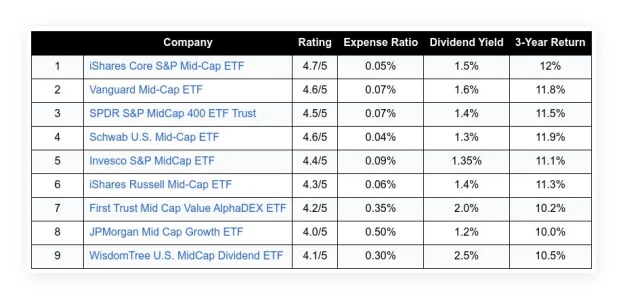There is no doubt that retirement is one of life’s most significant milestones. Most people dream about it from the moment they get their first paycheck. However, deciding when to retire is important. After all, some people count down the days until early retirement. However, some stay in the workforce well into their sixties or even seventies.
The thing is, there’s no universal “right time” to retire. You will want to determine the appropriate timeline for you, depending on your lifestyle, financial health, career satisfaction, health status, and personal goals. Our goal is to help you decide what path is right for you by comparing the pros and cons of early and delayed retirement.
Table of Contents
ToggleWhat Is Early Retirement?
The term “early retirement” refers to leaving the workforce before the traditional retirement age of 65. Especially for those who are following the FIRE movement (Financial Independence, Retire Early), this could mean retiring in their 50s or even their 40s.
Pros of early retirement.
You will have more time for yourself.
The most significant advantage of early retirement is the amount of time you will have. While still relatively young and healthy, early retirees can enjoy traveling, spending time with family, volunteering, and pursuing hobbies..
There is less work-related stress.
As reported in Headspace’s annual Workforce State of Mind report, 86% of workers experienced moderate, high, or extreme stress last year. Among respondents with extreme stress levels, 83% said their stress is primarily related to their work. However, early retirement frees you from the daily grind, corporate pressure, and long commutes. For those in high-stress or physically demanding jobs, retiring early can benefit their mental and physical health.
An opportunity to explore new ventures.
You don’t have to stop working when you retire early. This could be your chance to start a passion project, freelance, or consult — but on your own terms.
Cons of early retirement.
Financial strain.
Approximately 56 percent of Americans lack a solid financial plan for their post-working years, according to Allianz Life’s 2024 Annual Retirement Study. Suffice it to say, a significant downside of early retirement is the increased financial burden. Your savings may need to stretch over an extended period, and you may not be eligible for Social Security or Medicare immediately. As a result, you must rely heavily on personal savings, investments, or private insurance.
Loss of work-related benefits.
Once you leave the workplace, your employer’s health insurance, life insurance, and retirement contributions are no longer available. You might have to spend much money replacing them out of pocket.
Risk of boredom or identity loss.
Early retirement can profoundly impact the sense of identity of people who are devoted to their careers. When boredom sets in, routines or meaningful engagement become impossible.
What Is Delayed Retirement?
Delay retirement usually refers to working after the traditional retirement age of 65. Some people do this out of necessity, while others enjoy the structure and challenges of their work.
Pros of delayed retirement.
Improved financial security.
The longer you work, the more time you have to save, pay down debt, and delay withdrawals from retirement accounts. This could result in a more comfortable retirement lifestyle. In addition, delaying Social Security can significantly increase your monthly benefit.
Access to employer benefits.
If you stay employed, you will continue to receive health insurance, a 401(k) match, and other difficult-to-replace benefits.
Sense of purpose.
Work can provide structure and intellectual stimulation and also provide a sense of community. In many cases, delaying retirement allows people to maintain mental sharpness and remain socially connected.
Cons of delayed retirement.
Health risks.
Even if you are in great shape now, there is no guarantee that you will remain healthy in the future. If you delay retirement, you might miss years of active living while still physically capable.
Less time for enjoyment.
Working longer makes you less likely to travel, indulge in hobbies, and spend time with loved ones. Occasionally, health issues or unforeseen circumstances may lead to regret about this trade-off.
Job market challenges.
Older workers may face ageism or have difficulty adapting to rapidly changing technology or industry trends. As a result, it may be harder to remain competitive or find new opportunities when necessary.
Financial Considerations: A Crucial Part of the Decision
Whether you retire early or late, financial readiness is a huge part of the equation. To solve this, you should ask yourself the following questions;
- Do I have enough savings to support myself for 20, 30, or even 40 years of retirement?
- How am I going to cover my healthcare costs?
- Have I taken into account inflation and market downturns?
- Can I cover my expenses with my income streams (Social Security, pensions, investments)?
By creating a retirement budget and consulting a financial advisor, you can determine whether early retirement or delayed retirement is more feasible.
Lifestyle and Personal Goals
Finances aside, you should also consider how you want to spend your time.
- Do you have any travel plans on your bucket list?
- Is mentoring or volunteering appealing to you?
- Are you enjoying your current job or counting the minutes until you can quit?
- Can you step away from your professional identity emotionally?
In general, early retirees prioritize lifestyle and freedom, while those who delay retirement may place more value on routine and stability. In the end, it’s up to you to decide what feels right for you.
Health and Longevity
Although health conditions are unpredictable, your present physical and mental state can help you make an informed decision. So, if you’re experiencing health issues now, early retirement could help relieve your symptoms and give you more free time. On the other hand, if you’re thriving at work and enjoy it, continuing may enhance your mental engagement and wellbeing.
It’s important to remember that the longer you work, the more likely you are to have health issues. As such, having a backup plan is always a good idea.
The Middle Ground: Semi-Retirement
Don’t want to commit to a full stop? You may want to consider a phased approach.
In semi-retirement, you can reduce work hours, switch to freelance work, or transition into a less demanding position. With it, you can enjoy some of the freedom of retirement while maintaining your professional engagement and earning income.
This is a popular option for those who would like to remain active but not burn out.
Final Thoughts: Which Path Is Right for You?
There is no one-size-fits-all solution to retirement. In addition to offering freedom and flexibility, early retirement offers the chance to enjoy life while you’re young. However, careful financial planning and emotional preparation are essential. On the flipside, delayed retirement brings financial stability, continued purpose, and often better benefits — but it can mean less leisure time.
Think about the following questions as a guide to your choice;
- Is it possible to retire now and still live comfortably for decades?
- Is my job still enjoyable, or is it wearing me down?
- How do I envision my retirement?
- What are my health conditions, and how might they affect my retirement?
Retirement isn’t just about quitting work. It’s about taking on a new phase of life with intention. So, whatever path you choose, make sure it supports your values, goals, and well-being. The key to retiring is to do so on your terms, whether you do so early, late, or somewhere in between.
FAQs
What exactly is considered early retirement and delayed retirement?
- Early retirement. Generally speaking, this means retiring before the full retirement age set by the Social Security Administration (SSA). The retirement age is currently 67 for people born in 1960 or later. It is also common for people to consider retiring before the traditional retirement age 65 as early retirement. Regarding retirement planning, early retirement is often considered between 55 and 64.
- Delayed retirement. In this case, you would continue to work and delay your retirement until you reach your full retirement age. Although there is no strict upper limit, many consider delaying until their late 60s or even into their 70s.
How does Social Security factor into the early vs. delayed retirement decision?
Social Security plays a crucial role in many retirement income plans. Understanding how the claiming age affects benefits is vital.
- Claiming early (age 62). As a result, monthly benefits are permanently reduced. When you claim your full retirement age, the exact reduction depends on how many months you are left.
- Claiming full retirement age (currently 67). You receive 100% of your primary insurance amount (PIA).
- Claiming late (up to age 70). Your monthly benefit increases beyond your PIA when you receive delayed retirement credits. There is an annual increase of 8% for individuals born after 1943.
How do healthcare costs influence this decision?
Retiring is expensive, especially when it comes to healthcare.
- Early retirement. When you reach 65, you’ll be eligible for Medicare. But you’ll have to bridge the gap between leaving your employer’s insurance and becoming eligible. It may be necessary to purchase a private insurance policy at a high cost.
- Delayed retirement. If you work until 65 or later, you can continue to be covered by your employer’s health insurance, potentially saving significant amounts before Medicare kicks in.
What role do my personal savings and investments play?
Several factors affect the size and performance of your retirement nest egg:
- Strong savings. As long as you have substantial savings and investments, you may be able to retire early, as you will be less dependent on Social Security and retirement income from work.
- Limited savings. Depending on your savings level, delaying retirement may allow you to contribute more, grow your investments, and potentially boost your Social Security benefits.
Should I consult a financial advisor?
Absolutely. In terms of finances, deciding when to retire is a long-term decision. With the help of a qualified financial advisor, you can;
- Take a look at your current financial situation.
- Project your retirement income needs.
- Based on your specific circumstances, weigh the pros and cons of early retirement versus delayed retirement.
- Establish a risk-tolerant retirement plan that meets your goals.
Image Credit: Ann H; Pexels

















